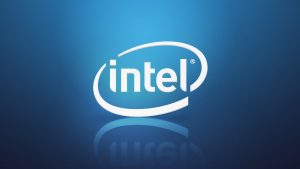 Increasing demand for personal computers has resulted in Intel Corp. (NASDAQ:INTC) raising its quarterly revenue forecast for the first time in more than two years. Global PC shipments fell less than expected in the second quarter, helped by strength in the United States. In the second quarter, worldwide PC shipments totaled 62.4 million units, a year-on-year decline of 4.5 percent but lower than the forecast of a 7.4 percent decline. Sales in the company’s PC business declined 3 percent to $7.3 billion in the quarter.
Increasing demand for personal computers has resulted in Intel Corp. (NASDAQ:INTC) raising its quarterly revenue forecast for the first time in more than two years. Global PC shipments fell less than expected in the second quarter, helped by strength in the United States. In the second quarter, worldwide PC shipments totaled 62.4 million units, a year-on-year decline of 4.5 percent but lower than the forecast of a 7.4 percent decline. Sales in the company’s PC business declined 3 percent to $7.3 billion in the quarter.
Intel predicted third-quarter revenue would be $15.6 billion, higher than its prior forecast of $14.9 billion. According to Thomson Reuters I/B/E/S, analysts on average were expecting $14.90 billion. Third-quarter R&D plus MG&A spending is expected to be approximately $5.2 billion. That is $100 million higher than the prior expectation. The company also expects a net loss of approximately $125 million from equity investments and interest, higher than the prior expectation of a net loss of approximately $75 million.
Intel doesn’t provide mid-quarter guidance updates often. Intel last increased its quarterly forecast for the second quarter of 2014. Many factors could cause Intel’s actual results to differ materially from those expressed in its guidance. Intel’s updated prediction does not include the potential impact of any business combinations, asset acquisitions, divestitures, strategic investments and other significant transactions that may be completed after Sept. 16. The company is scheduled to report third-quarter results on Oct. 18.
Intel is currently the world’s largest chipmaker. The company has struggled in recent years as tech users shifted from PCs to mobile phones for their computing needs. Shipments of PCs and the chips that power them have been waning. Historically, most of Intel’s sales have come from the PC business. Intel is now looking for revenue streams outside of its core PC-based business, including in growing segments like the Internet of Things (IoT), telecommunications, and data centers.
According to reports, Intel is supplying a portion of the modems for Apple’s iPhone 7 and iPhone 7 Plus. Intel has been working with Apple for the past few years to guide the development of the modem and had at least a 1,000 people working on the project by October 2015. The financial terms of the arrangement have not been disclosed by either company.
